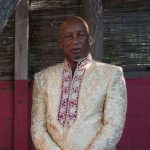
Who is Harry Grammer?
Harry Grammer is a poet/musician and founded New Earth in 2002. Since then he has been an integral part of growing the organization.
For ten years, Harry has been the head instructor for all New Earth programming that is offered to over 2,500 incarcerated and formerly incarcerated youth per year in Los Angeles County. In addition to developing and teaching core curriculum and designing new programs, Harry also trains and manages New Earth teaching staff.
83% of New Earth kids stay out of the juvenile probation system!
Harry has a stellar track record-with an 83% success rate in keeping the kids he works with out of the juvenile probation system once they are released.
Winner of Los Angeles Social Venture Partner’s 2013 Fast Pitch Competition and recipient of the 2012 Josephine “Scout” Fuller Award from Psychologists for Social Responsibility
Tell us about Your Work
New Earth provides mentor-based arts, educational, and vocational programs that empower juvenile justice system involved youth ages 13-22 to transform their lives, move toward positive, healthier life choices, and realize their full potential as contributing members of our community. New Earth is a nonprofit 501 (c)(3) organization.
In the summer of 2015 New Earth is opening the first youth center in Los Angeles dedicated to youth leaving juvenile detention facilities. The New Earth Arts and Leadership center will house innovative job programs, a charter high school, and arts programs including a recording studio.
Why New Earth?
We are committed to helping challenged youth create a new world for their lives.
How/Why did you get into this line of work?
I spent five years of my youth on juvenile probation, and I understand the challenges that probation youth face.
I played five sports, lettered in four, and I was considered a star athlete. I was one of the top athletes in the state in both football and track. That was my good side.
My other side was not nearly as productive. That was the side that wanted to explore and discover what I had been missing. I wanted to find brotherhood because I did not have brothers growing up. As those friends and I got older, we filled that void together, and we did what a lot of city kids do; we started hanging out. This type of hanging out was not just drinking soda pop, we became a full-fledged gang running the streets and causing trouble.
By the time I was 16 years old, I was a probation youth. How I survived that time, I really don’t know.
While I was on probation I had some really close calls, the kind that wound up with me being on the wrong end of a gun at very close range. I’ll never know if it was luck, or bad aim, or some kind of miracle that allowed me to stay alive. There is no reasonable explanation for how I cheated death so many times. What made even less sense is that all the close calls I encountered were not enough to convince me to stop running with my friends. It took a different kind of trouble for me to find my way out. One month after my eighteenth birthday, my options began to change: my girlfriend hit me with the news that she was pregnant, and I was going to be a father.
Where I once chose between sports and gangs, I now had to choose between fatherhood and football. During the last year of high school, the University of Hawaii offered me a football scholarship. I was a kid myself with no money and no job. I had to make a choice. I could start with a clean slate on an island that looked like paradise, where I would be educated and taken care of, or I could stay put with no prospects of leaving the neighborhood, no money, no education, and continue spending time with my friends — which could leave me dead before my baby was old enough to walk.
I defied my parent’s wishes and decided to take a partial scholarship at a local university. My parents were highly upset and asked me to leave their home three months before the start of school. My bags were packed and I have never returned to live with my parents again. My son was born nine months later. I worked two jobs in college to support him.
I made it through those years nearly unscratched. My girlfriend and I became husband and wife, had a daughter, and we both worked in Fortune 500 companies. We bought a home, and many would say we were living the American Dream. However, our relationship struggled, and at 25 years old we divorced with two children.
After the divorce, my life soon a new turn. I began to ask myself more about the meaning of life. Up to this point, I felt I had been living the life I thought I was supposed to live — not one that I chose to live. Slowly I began pulling away from the societal norms and expectations. I retreated into my studio apartment for weeks, living on disability checks I received for a foot surgery I had had. The foot surgery was the excuse that I gave my employer so that I did not have to return to my corporate job. I wanted to discover what I was truly passionate about and make a living from that.
Within the first year of my divorce and shortly after I recovered from foot surgery, my father had a heart attack while he and my mother were visiting Munich. He spent two weeks in a coma, and we were not sure that he would live. The moment he awakened from his coma he called me and asked me to fly to the hospital. I flew to Germany to see my father and I believe that was when my life began to change. I had never thought about leaving the United States before and had no interest in going outside of my comfort zone. Life surprised me by inviting me to go beyond my boundaries.
When I arrived in Germany it was foreign to all my senses. I did not speak the language, and I had not known anything about public transportation. After spending a couple of weeks with my father, I spent three weeks travelling with a friend I had met in Los Angeles a few months prior, who lived in Munich. She and I rode trains through the German countryside and spent time in some of the most beautiful forests and pastures. We drove to Italy and visited Milan, Florence, Pisa, and Rome.
This former juvenile probationer had never seen places so natural and beautiful before. My eyes were opened and my soul was receiving a cleansing.
Three weeks later, I found it hard to return to my home in the city. I retreated back into my apartment where I read more about the desires of my soul. I could not go back to the corporate world, and eventually I lost my apartment and moved into a tent on the beach.
From there, nature spoke to me about creating a New Earth.
In the vision for New Earth I saw the work I do today.
I began with a volunteer poetry workshop in one youth detention center, and today we have programs in 14 youth detention centers in Los Angeles. We serve 400 youth per week and 1500 youth per year.
In 2013 we officially launched our post-release division. We offer a work program, arts programming, case management, and counseling for youth released from detention.
What is most rewarding about New Earth; what makes it all worthwhile?
The kids make it worthwhile. What wakes me up in the morning and motivates me to get out of my bed is to work with these young people that I get to work with. Every day I am floored by the potential that they carry and by the wonder in their eyes. They’re bright-eyed, bushy-tailed kids who are soaking up it all up and asking for more.
Kids are graduating high school left and right inside these facilities. They’re not throw away kids, they’re not vagrant kids who have no capacity to learn and to grow. They’re not criminals. They’re not animals. Even if they have tattoos up and down their necks, or they look scary, at the end of the day they’re children, and who knows where they can be 10 years from now.
Right now they’re learning what it is to be human and be alive, to be on the planet and live life. They have purpose, and they’re finding what that purpose is. They’re discovering what makes them tick, what they are really passionate about. They’re 16 or 17-year-old kids — they haven’t lived on the planet even two decades! They’re like any other teenagers that are confused about what they want to do in life.
What are the most critical problems faced by New Earth?
There are 30,000 young people on probation or locked up in L.A. County, more than any other metropolitan area in the world. Los Angeles has an 86% recidivism rate, which means 86% of young people that get locked up in L.A. will get locked up again. We are up against a system that doesn’t flinch at locking up children. This country has a mass incarceration problem. We are in the business of eradicating that.
If we’re sitting here a year from now celebrating what a great year it’s been for you, what would be your “dream” achievement?
We are boldly initiating the New Earth Arts and Leadership center this summer. A year from now I would like to know that it is running smoothly and is making an impact on juvenile justice in Los Angles. That is my one-year “dream achievement”.
How do you keep a healthy work/life balance?
Spend time with my wife and children, meditate, write poetry, travel, and make music.
About Pacifica & You
What brought you to Pacifica?
The desire to look at the issues in my work from a depth psychological and phenomenological perspective.
How has your Pacifica degree served you professionally in your occupation or your vocation?
Pacifica has been a launch pad for my work. Although I was deep in my work prior to Pacifica, the studies and relationships I made have redesigned my approach. Mary Watkins has been a tremendous mentor for New Earth and I. I am eternally thankful for her support.
How has your degree served you personally?
I am looking forward to receiving my doctorate degree. I feel that will help to move this work in ways I haven’t in the past.



